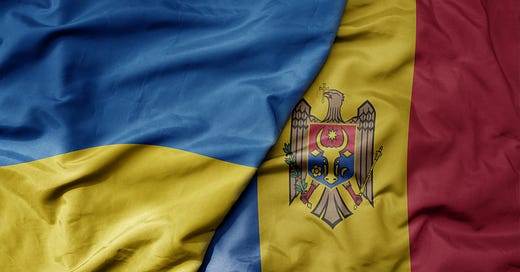Dear Friends of Democracy,
Should Ukraine try to enter into ceasefire negotiations with Russia?
The voices favour this are growing, not least because Ukraine has found itself on the defensive on the battlefield.
Whatever the outcome of the negotiations in detail, the general outline of this outcome would have been determined in advance: In exchange for an end to the fighting, Ukraine had to leave the occupied country to Russia.
What this would lead to can be seen in Ukraine’s neighbouring country, Moldova.
In 1992, Moldova experienced Russia‘s first post-Soviet war of aggression. The Transnistria War left hundreds dead and ended with a cease agreement. More than three decades later, 1500 Russian troops are still stationed in Transnistria, a strip of land in eastern Moldova with 370,00 people on internationally recognised Moldova territory.
Through this territorial occupation, Russia has the most significant influence over the country and its people: In Transnistria, history lessons in schools include fake news, unwanted journalists are imprisoned, and there is hardly any trace of democracy in Transnistria. And the threat that Moldova will become a second Ukraine constantly hangs over the country.
Freelance Moldavian journalist Paula Erizanu recently wrote about the ceasefire agreement:
„For three decades, it has fractured Moldova, hindered national development and given Russia continued opportunities to meddle with Moldovan life. A frozen conflict, we should remember, is still a conflict. Anyone calling for Ukraine to settle for one should heed Moldova’s cautionary tale.“
✊ We should think of Moldova when considering what is the best next step for Ukraine. Sitting on the negotiation table with Putin‘s Russia may stop the war for now but it will probably prolong the aggression. This at least is what we can learn from Moldova. There, they fear escalation today not because they didn’t sit down at negotiation tables some three decades ago but because they did.
See you in Europe,
Johannes




